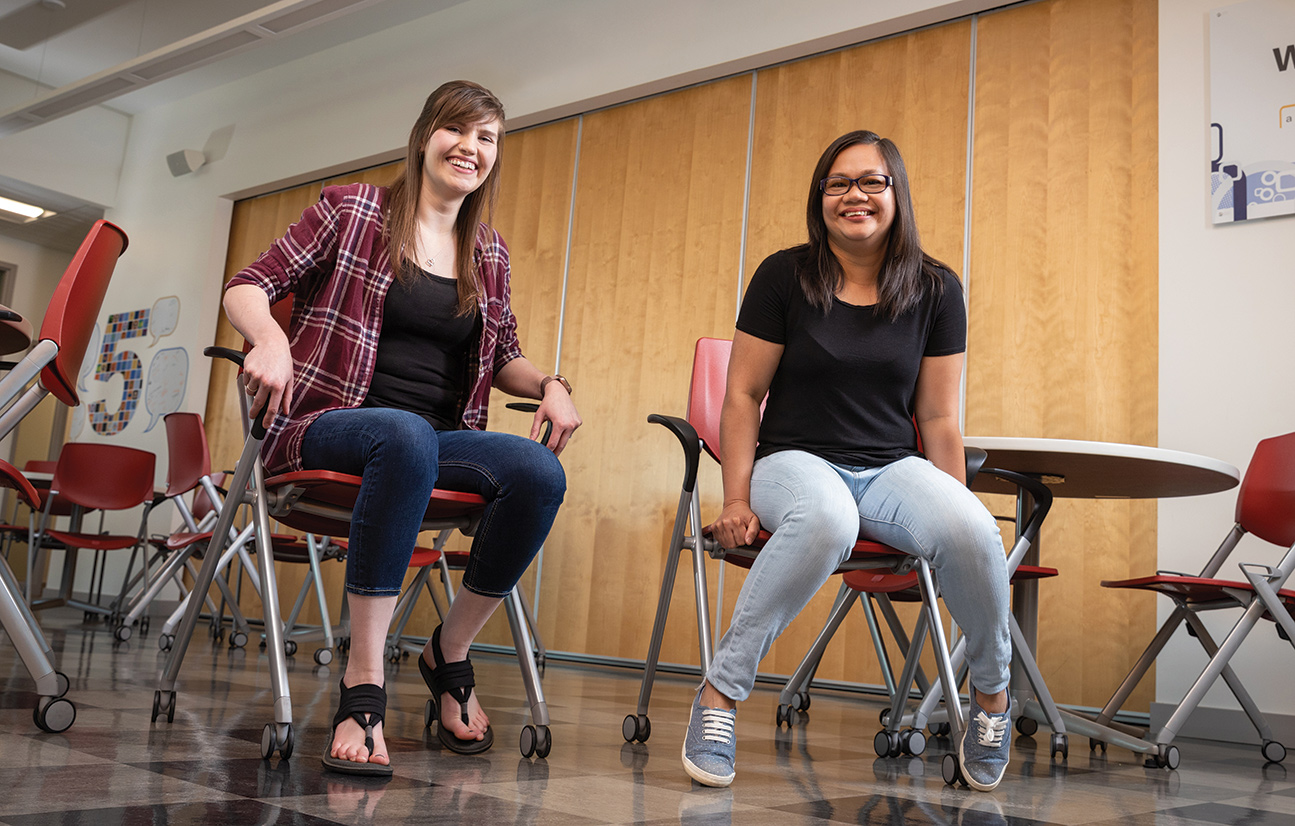
Having completed the first year of their Computer Information Technology (CIT) diploma program, Lethbridge College students Katherine Campos and Cassandra Olfert might have been looking forward to a summer break from tech. Instead, they dove into a coding challenge with five other Lethbridge students, entering an international technology and business case competition in Toronto.
Campos and Olfert joined University of Lethbridge students Kathleen Gonzales, Kairvee Bhatt, Leila Karimi and Mahshid Aghania and high school student Brooklyn Carlson at the CryptoChicks Hackathon May 31 to June 2. CryptoChicks is a showcase of women in technology and business. Men were allowed in the youth category, but Campos and Olfert were competing with women only.
“It was a great opportunity for us,” says Campos. “Although it was challenging, tiring, and all that, it was so exciting.”
Olfert says many of the conference experts were women who were generous with their knowledge, and it was inspiring to see so many women in tech. In the CIT program, women are in the minority, mirroring industry demographics.
CryptoChicks competitors chose the problem they wanted to solve. The Lethbridge team focused on something close to southern Alberta’s agricultural heart – providing traceability for the canola industry in response to China’s decision to embargo Canada’s crop. The solution involved sensors, blockchain and machine learning technology.
Coached by Jefferson Gardner (Business Administration – Management 2009), a Lethbridge-based blockchain expert, and Dr. Muhammad Khan, an assistant professor from the U of L Department of Mathematics and Computer Science, the students divided into two groups, one focused on code, the other on the business case. While their work was judged separately, their presentations were integrated.
Olfert’s focus was on machine learning using Python code. Her goal was to create a system to predict commodity price based on the conditions recorded by sensors tracking the canola from field to final delivery. Temperature, moisture and other factors can affect the quality of the seed.
Campos’s task was developing “the wallet” using the programming language JavaScript. The wallet is an interface for tracking secure transactions in blockchain, giving the canola traceability on its journey to market. The students had about a day and a half in Toronto to write the code from scratch and prepare a presentation for judges. They ended up finishing third. Olfert says the event was an exercise in teamwork. “There were four or five of us working on the developer side, and then we worked closely with the business team as well, getting the presentation and all of our ideas together. There was a public speaking aspect as well. I was more worried about our time limit than about being in front of everybody.”
Campos and Olfert say they’d welcome an opportunity to continue working on the project because they see how their ideas could benefit the agriculture industry. It’s a continued commitment their coaches, Gardner and Khan, would also welcome. “Muhammad and I were particularly impressed with Kathy and Cassandra’s abilities to pick up technical skills quite quickly,” Gardner says. “Kathy worked through kinks in the front end and Cassandra picked up on machine learning better than we could have ever anticipated.”
Campos, 35, came to the college with an information technology degree from her homeland of the Philippines. She plans to pursue a second degree, likely online to accommodate family commitments, after college. Olfert, 28, also plans to transfer her college diploma toward a U of L degree in computer science. “Technology is always renewing and changing,” Campos says. “We’re always finding more to learn.”



